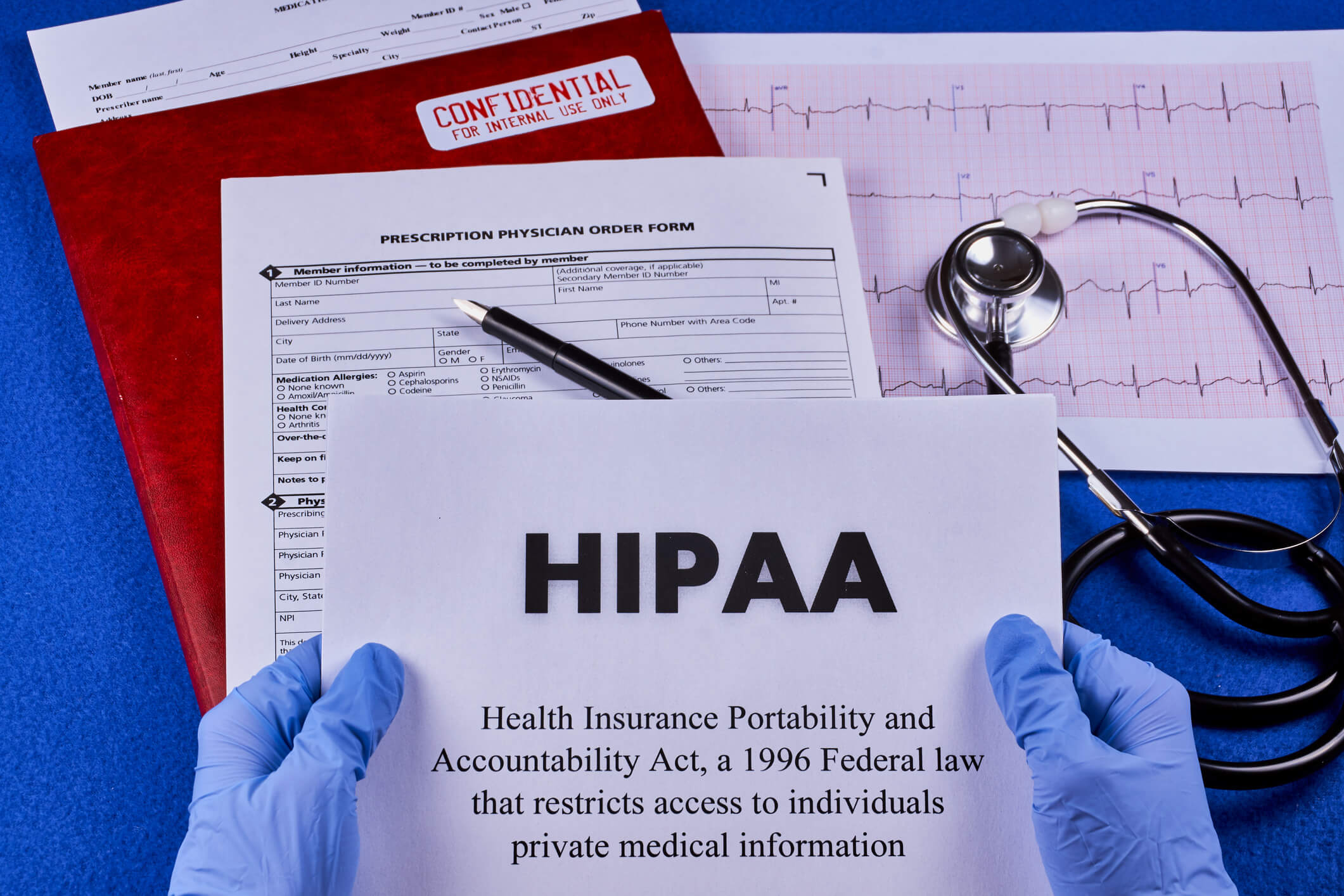The Health Insurance Portability and Accountability Act of 1996 (HIPAA) is a piece of legislation in the United States that ensures the security of all medical information for individuals.
Today, the top healthcare organizations’ concern is compliance with HIPAA (Healthcare Insurance Portability and Accountability Act of 1996). HIPAA rules are meant to secure protected health information (PHI), whether electronic or manual. To achieve HIPAA compliance, healthcare institutes and professionals must follow guidelines to ensure the security and protection of their patients. If you are unsure about the rules, contact the Chief Information Security Office for review.
HIPAA Compliant – A Checklist
HIPAA rules and regulations have changed, causing healthcare organizations many challenges. Its complex language has often created a hindrance, making it hard for organizations to determine if their activities are correctly maintained according to HIPAA compliance. Healthcare organizations must address some specific rules by HIPAA, which are as follows:
- HIPAA Privacy Rule
- HIPAA Security Rule
- HIPAA Enforcement Rule
- HIPAA Breach Notification Rule
HIPAA Privacy Rule
The HIPAA Privacy Rule ensures that an individual’s healthcare information, including all medical records and personal information (healthcare plans, insurance, and financial), is adequately protected. The goal is to provide security while allowing secure access to healthcare practitioners, but not without a patient’s authorization. The rule balances the disclosure of information and protects an individual’s privacy. According to the HIPAA Privacy Rule, patients have full rights over their medical information, which means they can obtain their medical records or request a correction.
HIPAA Security Rule
The HIPAA Security Rule sets the national principles for safeguarding an individual’s electronic health information as declared under the privacy rule. The Rule ensures the electronic PHI’s reliability, security, and confidentiality. Three types of safety measures fall under the HIPAA Security Rule: physical protection, Technical protection, and Administrative protection.
Physical Protection
Limited Access to Facility—The organization must limit physical access to its amenities and ensure that only authorized personnel are allowed in the facility.
Workstation security—The organization must implement strict policies and procedures for using electronic devices. A covered entity must record all hardware activities, including people responsible for transferring or moving data.
Technical Protection
Access Control—The organization must allow only authorized personnel to access electronic PHI. Any removal of e-PHI from the system must be examined to ensure that it is appropriately altered or destroyed.
Audit Control—All hardware and software activities must be recorded and examined to prevent data theft or misuse. The organization is responsible for ensuring that only authorized people have access to the information.
Administrative Protection
Security Officials – The organization must entitle a security official to implement policies and procedures.
Training Management – The organization must train all its employees and brief them on the security measures of e-PHI and the consequences of violating any policies and procedures.
Assessment – The organization is responsible for assessing all its security measures and how well they are followed. Organizations must be consistent with the rules by limiting the disclosure of e-PHI to a minimum. Only authorized personnel should have access to the information.
HIPAA Enforcement Rule
The HIPAA Enforcement Rule requires enforcement of the Privacy Rule by all healthcare organizations. If any organization fails to comply with HIPAA, it must face penalties. There are several ways the OCR implements the Privacy and Security Rules:
- Investigation of complaints
- Determining whether healthcare organizations follow HIPAA
- Educate organizations and provide substitute compliance if required
HIPAA Breach Notification Rule
Any organization that allows disclosure of healthcare information without authorization, under any circumstances, will be convicted of violating HIPAA rules. The organization must notify the secretary immediately if it discovers an information breach.
Conclusion
In conclusion, the Health Insurance Portability and Accountability Act of 1996 (HIPAA) is a vital piece of U.S. legislation that safeguards the security and privacy of individuals’ medical information. Healthcare organizations face the crucial task of achieving HIPAA compliance, encompassing a range of rules such as the Privacy Rule, Security Rule, Enforcement Rule, and Breach Notification Rule. These rules collectively protect patients’ protected health information (PHI) in electronic and manual formats. The Privacy Rule ensures confidential healthcare data access is granted only to authorized personnel, while the Security Rule establishes national standards for safeguarding electronic PHI. The Enforcement Rule reinforces compliance through investigations and penalties.
The HIPAA Breach Notification Rule demands swift reporting of any unauthorized disclosure of healthcare information. HIPAA compliance is essential, ensuring the protection and privacy of patients’ medical data and underpinning modern healthcare practices.
 About Complete Controller® – America’s Bookkeeping Experts Complete Controller is the Nation’s Leader in virtual bookkeeping, providing service to businesses and households alike. Utilizing Complete Controller’s technology, clients gain access to a cloud platform where their QuickBooks™️ file, critical financial documents, and back-office tools are hosted in an efficient SSO environment. Complete Controller’s team of certified US-based accounting professionals provide bookkeeping, record storage, performance reporting, and controller services including training, cash-flow management, budgeting and forecasting, process and controls advisement, and bill-pay. With flat-rate service plans, Complete Controller is the most cost-effective expert accounting solution for business, family-office, trusts, and households of any size or complexity.
About Complete Controller® – America’s Bookkeeping Experts Complete Controller is the Nation’s Leader in virtual bookkeeping, providing service to businesses and households alike. Utilizing Complete Controller’s technology, clients gain access to a cloud platform where their QuickBooks™️ file, critical financial documents, and back-office tools are hosted in an efficient SSO environment. Complete Controller’s team of certified US-based accounting professionals provide bookkeeping, record storage, performance reporting, and controller services including training, cash-flow management, budgeting and forecasting, process and controls advisement, and bill-pay. With flat-rate service plans, Complete Controller is the most cost-effective expert accounting solution for business, family-office, trusts, and households of any size or complexity.



